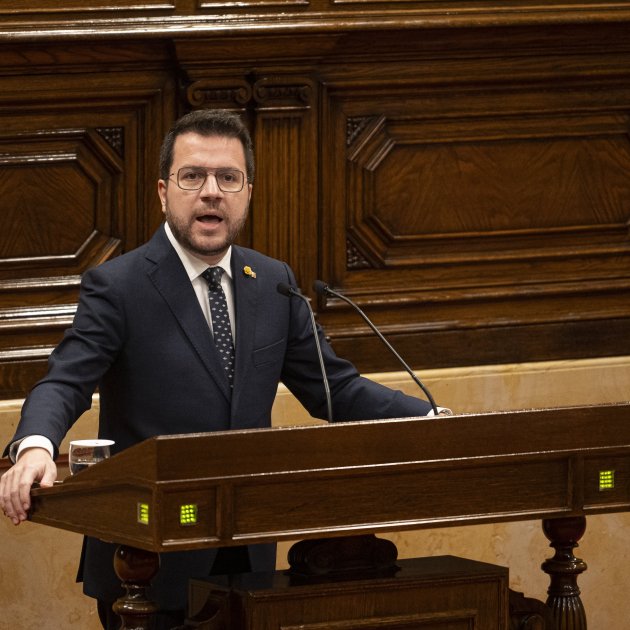Spain's National Intelligence Centre (CNI) requested judicial permission to spy on Catalan politician Pere Aragonès with Pegasus software, alleging that he was the clandestine leader of the pro-independence CDR activist groups, ElNacional.cat can reveal. The judicial documentation just declassified by the Spanish government includes the reasons why the CNI asked to spy on the now-president of Catalonia with the espionage software. "Aragonès has directed the actions of the CDR" or "Aragonès, always on the sidelines of his institutional role and in secret, has continued to exercise the functions of coordinator of the CDRs", are some of the textual quotes that appear in the documentation, as ElNacional.cat has learned.
With this justification, the CNI asked for approval from a Supreme Court judge to use Pegasus to access the communications of the then vice president of the Generalitat, and noted that it did not wish to carry out the espionage to monitor him in his capacity as number of the Catalangovernment, but in his role as coordinator of the Committees for the Defence of the Republic, as the CDRs are known in full. "The request [to be able to spy on him] is not due to his status as vice-president of the Generalitat, but because of the task of directing and coordinating the activities of the CDRs," the state's intelligence service asserts in its request. It is not known whether in its request the CNI gave evidence to Supreme Court judge Pablo Lucas to allow the Pegasus infection of Aragonès's mobile phone from July 2019 to April 2020. The president maintains that hacking took place in 2018 and, therefore, was carried out without judicial approval.
Censored documentation
Aragonès's defence lawyer received the documentation this Thursday, full of sections with phrases covered over, making it impossible to understand the meaning of many of the paragraphs, in which entire pages were also completely whited out. According to sources close to the president, the justifications provided by the CNI for hacking his telephone communications "are beyond reality, they are inventions and totally implausible".
The Spanish government sent the declassified documentation to the judge handling the Pegasus case at the Barcelona court this Thursday, 24 hours before Paz Esteban is due to testify before as a person under investigation. In this way, it rectified a communication from earlier this week informing the judge of the declassification of the communications, but without handing over the three Supreme Court resolutions that gave the green light to the CNI to intercept Aragonès's phone, when he was vice president of the Catalan government.
For her part, the Spanish minister of defence, Margarita Robles, whose responsibilities include the CNI, has admitted this Thursday during an appearance in Congress, that her executive sent the judge the documentation that was "absolutely essential" and "without being tight-fisted about it" so that the former CNI director can testify and be questioned this Friday about the espionage against Aragonès. According to Robles, in this documentation "it is clear" that "everything was done with judicial authorization" and, therefore, "with absolute respect for the law".
